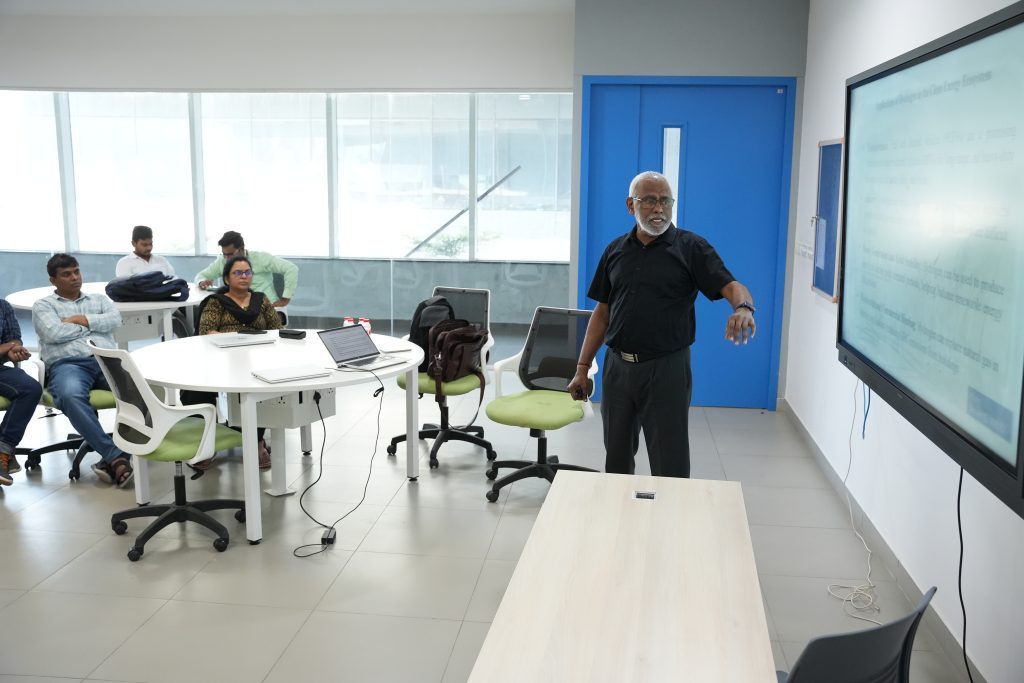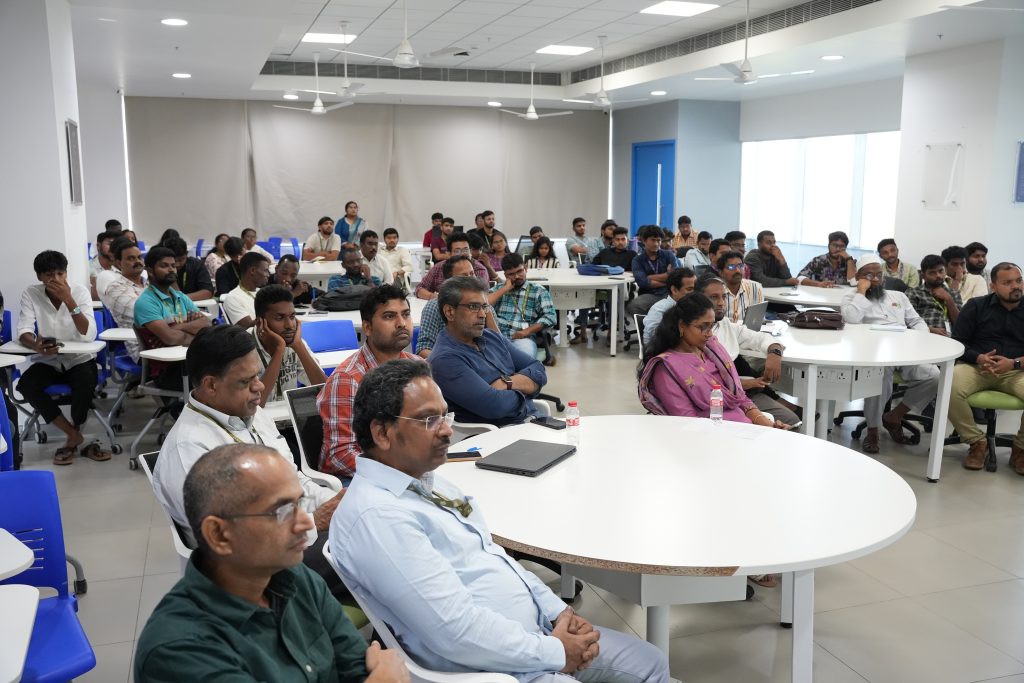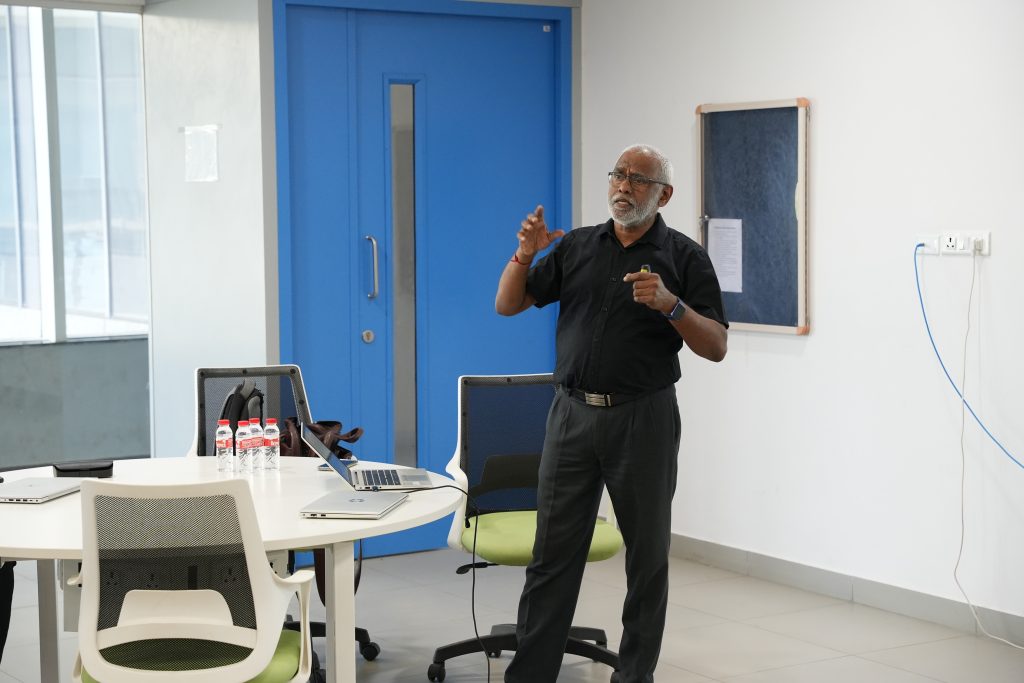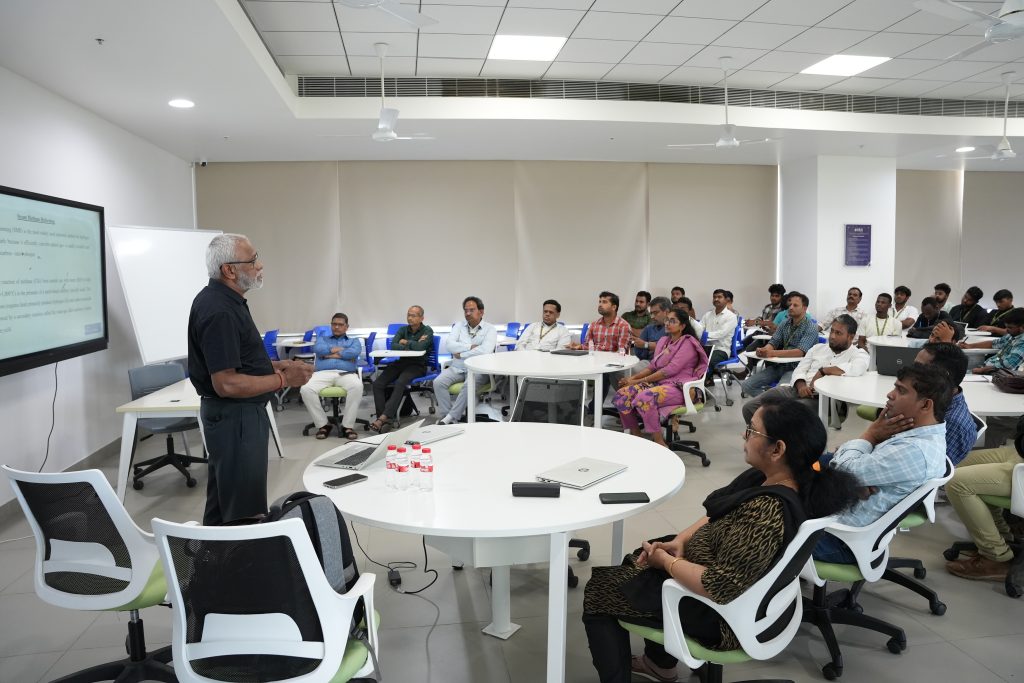Parameters to Measure a University Entrepreneurial Ecosystem

With the increasing emphasis on startup culture and enhancing entrepreneurial ventures among the youth, Dr Aftab Alam, Assistant Professor from the Department of Management has published a paper “Developing a Reflective-formative-formative Scale for Measuring University Entrepreneurial Ecosystem from Students’ Viewpoints” in the Q1 journal IEEE Transactions on Engineering Management having an impact factor of 4.6.
Dr Aftab and his team have conducted research on how universities can create the best environment to support entrepreneurship among students and staff. The team has identified three key elements that help an entrepreneurial ecosystem thrive:
- Skill Development – Helping people learn how to start and manage businesses.
- Resources – Providing tools, funding, and guidance.
- Culture – Encouraging creativity, risk-taking, and innovation.
They have also created a way to measure how well universities are doing in building this supportive environment, helping them improve and compare with others.
Abstract
This research addresses the gap in the literature on University Entrepreneurial Ecosystems (UEE) by conceptualizing UEE as an ecology-inspired system with dimensions like Entrepreneurial Skill Development, Resources, and Culture. Unlike prior studies focusing on isolated aspects, we provide a comprehensive framework and develop robust measurement scales using a rigorous four-step methodology, ensuring nomological validity. The paper contributes to entrepreneurial ecosystem literature by offering a novel conceptualisation and practical tool for evaluating and comparing UEE performance. This study aids scholars in understanding UEE’s holistic impact and supports managers in enhancing university-driven entrepreneurship for regional development.
Practical Implication of the Research
This paper contributes to the entrepreneurial ecosystem literature by conceptualising and measuring performance of university entrepreneurial ecosystems (UEE). Beyond academic circles, it could also serve as a valuable tool for managers seeking to evaluate and enhance the performance of these ecosystems.
Collaboration
- Dr Arpita Ghatak, Kent Business School, University of Kent
- Dr Bhaskar Bhowmick, Indian Institute of Technology Kharagpur
- Dr Swagato Chatterjee, Queen Mary University of London
Future Research Plan
- Longitudinal Validation: Conduct longitudinal studies to evaluate how UEE dimensions evolve over time and their sustained impact on entrepreneurial outcomes like spinoffs, startups, and regional development.
- Comparative Analysis: Compare UEEs across diverse geographic, cultural, and institutional contexts to identify patterns, best practices, and challenges unique to different ecosystems.
- Entrepreneurial Outcomes Measurement: Develop advanced metrics to assess the direct and indirect outcomes of UEEs on entrepreneurial intentions, skill-building, and economic growth.

Confirmatory first-order measurement model results for the subscales

Hierarchical Third-Order Measurement Model Results
- Published in Departmental News, News, Paari Current Happenings, Research News
Revolutionising Cardiac Diagnostics and Real-time Health Monitoring

Dr Manjula R, Assistant Professor, Department of Computer Science and Engineering, and Dr Anirbhan Ghosh, Assistant Professor, Department of Electronics and Communication Engineering, has recently had their patent published titled “A System for Analyzing Electromagnetic Wave Scattering Path Loss in a Tissue and a Method Thereof” with Application no: 202541001730.
The faculty duo has revolutionised cardiac diagnostics and real-time health monitoring through their invention. This innovative system analyses electromagnetic wave scattering in biological tissues, using terahertz (THz) frequencies to optimise nanosensor communication and path loss analysis. By leveraging cutting-edge technology, it enables advanced biomedical devices for precise physiological monitoring and safer, more reliable in-vivo communication systems. A step forward for heart health and medical breakthroughs, this invention bridges the gap between technology and life-saving healthcare solutions.
- Published in CSE NEWS, Departmental News, ECE NEWS, News, Research News
From Mechanisms to Theory: Dr Siva Reddy Addresses Students of Biological Sciences
 The Department of Biological Sciences organised a significant expert talk titled “Senescence-Associated Cardiovascular Dysfunction: From Mechanisms to Therapies”, the talk was led by Dr Kotla Siva Reddy, Associate Professor, Department of Cardiology, Division of Internal Medicine, The University of Texas MD Anderson Cancer Center, Houston, TX, USA. This talk aimed at research scholars in the field explored the complex interplay between cellular senescence, cardiovascular health, and the adverse effects associated with cancer and HIV treatment drugs.
The Department of Biological Sciences organised a significant expert talk titled “Senescence-Associated Cardiovascular Dysfunction: From Mechanisms to Therapies”, the talk was led by Dr Kotla Siva Reddy, Associate Professor, Department of Cardiology, Division of Internal Medicine, The University of Texas MD Anderson Cancer Center, Houston, TX, USA. This talk aimed at research scholars in the field explored the complex interplay between cellular senescence, cardiovascular health, and the adverse effects associated with cancer and HIV treatment drugs.
The resource person, Dr Siva Reddy, with his extensive academic background in Biotechnology set the stage for discussions. Key topics of discussion included the molecular mechanisms underlying cardiovascular dysfunction linked to cancer and HIV therapies, particularly focusing on oxidative stress and endothelial dysfunction.
The event also fostered an interactive environment where scholars and students engaged in meaningful dialogues. Attendees gained crucial insights into how cellular senescence and foam cell formation contribute to atherosclerosis, thereby affecting cardiovascular health.
In conclusion, the event successfully facilitated rich discussions on the intersections of oncology, virology, and cardiovascular health. By focusing on innovative therapeutic strategies and the underlying mechanisms of cardiovascular diseases induced by treatment regimens, the event contributed significantly to enhancing the collective understanding and research efforts in the realm of cardiovascular aging.
- Published in Biology News, Departmental News, News, Research News
Enhancing Hydrogen Generation Efficiency through Machine Learning

The Department of Mechanical Engineering successfully hosted an Invited talk on “Hydrogen Gas as the Future Fuel for Sustainable Power Generation and Application of Machine Learning Techniques for Modeling of Hydrogen Generation by Chemical Reactions” on February 24, 2025. The session witnessed Prof. P. S. Robi, a distinguished Professor of the Department of Mechanical Engineering at the Indian Institute of Technology (IIT) Guwahati and Former Deputy Director of IIT Guwahati, Assam, India, as the esteemed speaker.
Prof. P S Robi highlighted the importance of hydrogen as a sustainable fuel, emphasising its potential to replace fossil fuels, reduce carbon emissions, integrate with renewable energy sources, and the role of research and industry collaboration in advancing its adoption to make hydrogen a viable energy source for a sustainable future. He also addressed key challenges in hydrogen adoption, particularly the need to overcome high production costs and storage limitations.
Furthermore, Prof. Robi emphasised the role of Machine Learning in enhancing hydrogen generation efficiency through data-driven modelling and optimisation. Potential research and collaboration prospects, advocating for stronger partnerships between academia, industry, and policymakers to accelerate the advancement and implementation of hydrogen technology, were extensively discussed. Additionally, Prof. P. S. Robi highlighted the myriad of research opportunities available for faculty, research scholars, and students interested in hydrogen generation.
The talk concluded with an interactive Q&A session, during which the participants actively engaged with the speaker. The session was attended by Dr Lakshmi Sirisha Maganti, Head of the Department of Mechanical Engineering, Dr Chandan Kumar, Assistant Professor and convenor of the event, along with the faculty, scholars and students of the university.
- Published in Departmental News, Mechanical Engineering NEWS, News









